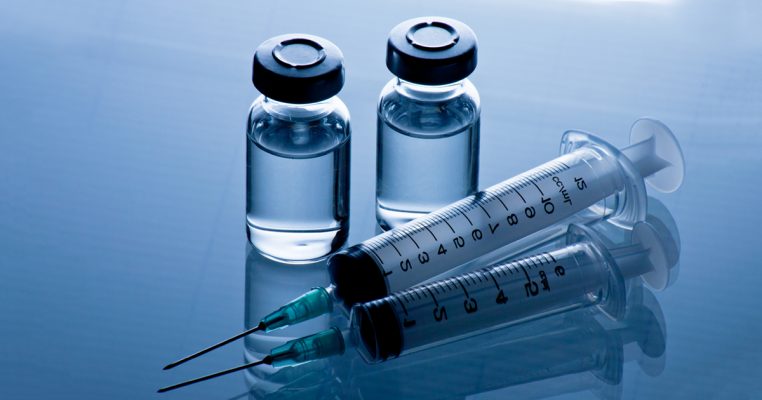Between, Vaccine Funding, Local Production and Reliance on Donor. Agencies and Effect on Health System

The air in the conference room of the National Primary Healthcare Development Agency (NPHCDA) hung thick with a mixture of frustration and fervent hope. Sunlight streamed through the large windows, illuminating the faces of the assembled stakeholders – representatives from international health organizations, local NGOs, public health experts, and concerned citizens. The date was Monday, April 7th, 2025, and the mood, despite the professional decorum, was one of urgent appeal.
Dr. Fatima Aliyu, a leading epidemiologist and spokesperson for the Coalition for Vaccine Equity, stood at the podium, her voice resonating with conviction. “We are here today,” she began, her gaze sweeping across the room, “because the progress we have made in safeguarding the health of our nation is teetering on a precipice. The outstanding vaccine funds, promised and crucial, remain unreleased. This delay is not merely an administrative hurdle; it is a direct threat to the lives and well-being of millions of Nigerians, particularly our most vulnerable children.”
Her words painted a stark picture. Routine immunization programs, the bedrock of public health, were facing crippling shortages. Health workers in remote communities were forced to turn away mothers and infants seeking vital protection against preventable diseases like measles, polio, and diphtheria. The gains made in reducing infant mortality and morbidity were at risk of being tragically reversed.
Mr. Kwame Adebayo, country director for UNICEF, echoed Dr. Aliyu’s concerns. “The consistent and timely release of funds is paramount for effective vaccine procurement and distribution. These delays disrupt supply chains, erode trust in the system, and ultimately leave children unprotected. We have witnessed the devastating consequences of vaccine-preventable outbreaks in the past, and we cannot afford to repeat those mistakes.” He emphasized the logistical nightmares caused by the uncertainty, the difficulty in planning vaccination campaigns, and the potential for vaccine wastage due to unpredictable delivery schedules.
The stakeholders presented a unified front, each voice adding a layer of urgency to the plea. Representatives from local NGOs shared harrowing stories from the field – of parents walking for days to reach health facilities only to be told vaccines were unavailable, of communities gripped by fear as rumors of disease outbreaks spread, and of the demoralization of frontline health workers who felt let down by the system.
Beyond the immediate crisis of delayed funds, the stakeholders collectively emphasized the critical need for a long-term, sustainable solution: a significant ramp-up in investment in local vaccine production.
Professor Chinedu Okoro, a renowned virologist and advocate for local manufacturing, passionately argued the case. “Our over-reliance on imported vaccines leaves us perpetually vulnerable to global supply chain disruptions, geopolitical tensions, and fluctuating prices. Investing in local production is not just a matter of economic prudence; it is a matter of national security and public health sovereignty.”
He outlined the potential benefits: job creation, technological advancement, a more secure and predictable vaccine supply, and the ability to tailor vaccines to the specific needs of the Nigerian population. He acknowledged the initial investment required but stressed the long-term cost-effectiveness and the invaluable benefit of self-reliance.
The discussions delved into the practicalities of establishing local vaccine manufacturing facilities. Experts highlighted the need for technology transfer, capacity building, regulatory frameworks, and robust quality control mechanisms. They pointed to successful examples in other developing countries that had made strategic investments in their pharmaceutical industries, achieving greater health security and economic growth.
A representative from the Pharmaceutical Society of Nigeria underscored the existing expertise within the country, emphasizing the potential for collaboration between local pharmaceutical companies, research institutions, and international partners. He called for government incentives, tax breaks, and a clear roadmap for the development of a thriving local vaccine industry.
The stakeholders acknowledged the government’s past commitments to strengthening the healthcare system but stressed that these commitments needed to be translated into concrete action, particularly in the area of vaccine financing and local production. They urged for greater transparency in the allocation and release of funds and for a clear and ambitious national strategy for vaccine independence.
As the day drew to a close, the collective message was clear and unwavering: the Federal Government held the key to safeguarding the health of its citizens. The urgent release of outstanding vaccine funds was a critical first step, a necessary measure to avert an immediate crisis. However, this needed to be coupled with a bold and sustained commitment to investing in local vaccine production, a strategic move that would ensure long-term health security, economic benefits, and national pride. The stakeholders left the NPHCDA with a renewed sense of purpose, determined to continue advocating for these crucial measures, their voices united in a powerful call for action. The health and future of Nigeria depended on it.









